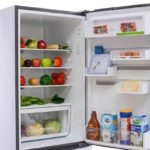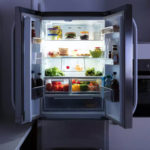The lifespan of most refrigerators is over 5 years, but with proper maintenance, they can be used for more than 10 years. However, there are also some cases where they break down even though they have only been used for a short time. The reasons that cause refrigerators to deteriorate before their lifespan is not only due to technical faults but also to user behavior. Let’s see if you have these behaviors.
1. Setting the temperature inside the refrigerator too high
The optimal temperature for a refrigerator is from 0-4 degrees Celsius, because if it is higher than this level, bacteria will grow rapidly, reducing the freshness of the food or even producing mold. For a freezer, the optimal temperature is -18 degrees Celsius.
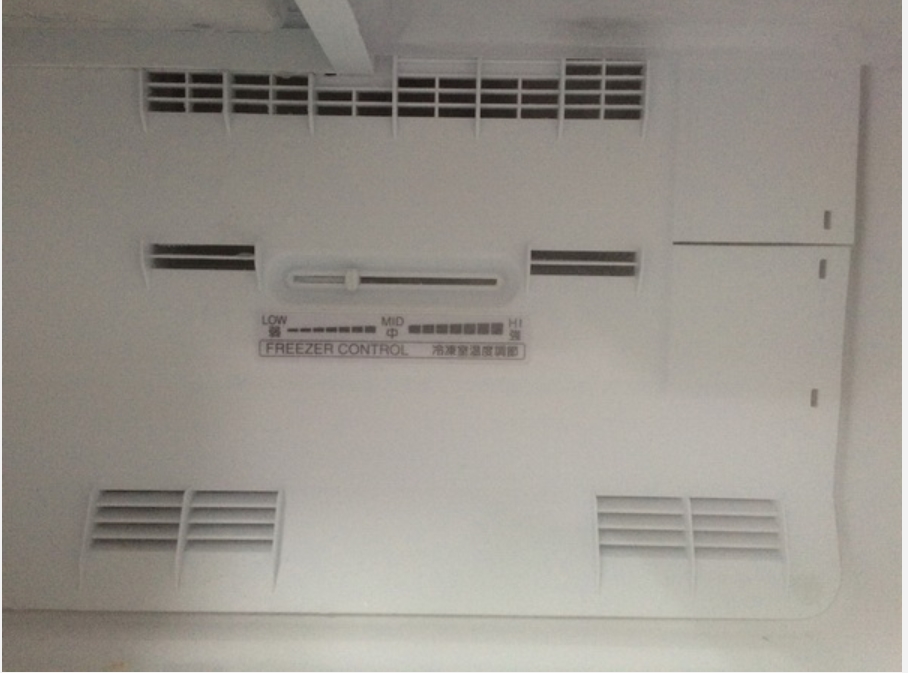
2. Placing the refrigerator too close to the wall
The refrigerator cools through the compressor shell at the back. Therefore, to allow the refrigerator to dissipate heat well, you should not place it too close to the wall. The optimal distance between the refrigerator and the wall is 15 cm or more.

3. Placing it near a heat source
Do not place the refrigerator in places with high heat sources such as direct sunlight, gas stoves, electric rice cookers, electric pans, or any other heat-emitting devices, as it will affect the refrigeration process of the refrigerator. It also makes the refrigerator work harder and consume more energy.
4. Putting hot food in the refrigerator
Keeping hot food in the refrigerator can cause the temperature inside the refrigerator to be higher than the required temperature, affecting the preservation process. As a result, the food may spoil or deteriorate due to the refrigerator not being cold enough. On the other hand, putting hot food suddenly into the refrigerator can cause “thermal shock” to the food. From there, harmful bacteria will easily grow and develop, contaminating and spoiling the food. It is not safe to consume such food, and in the long run, it is harmful to health.
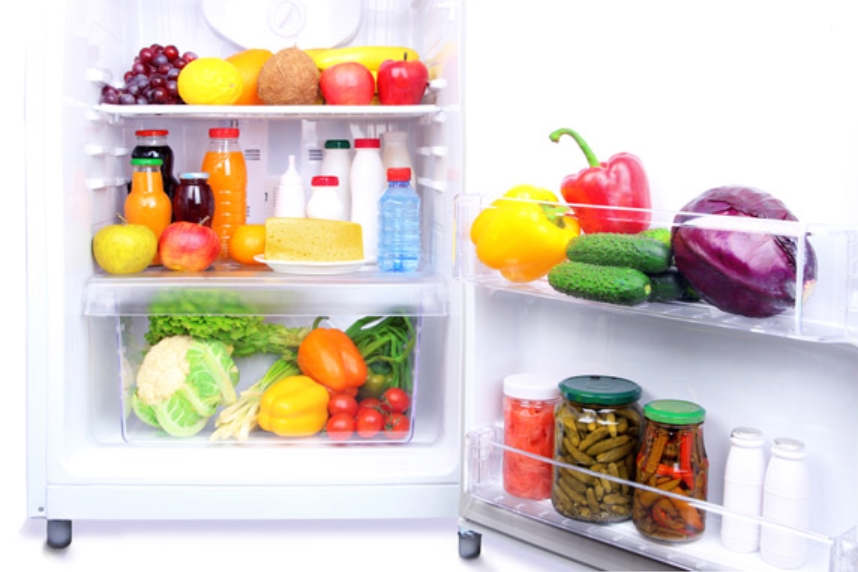
Another point is that when bringing hot items into the refrigerator, the compressor will have to work harder to balance the temperature inside the refrigerator, reducing the working lifespan of the internal system.
5. Not using food preservation trays
Raw foods such as fresh meat or vegetables, even if they are packaged in plastic-wrapped foam trays, still need separate trays when placed in the refrigerator. Dirt and chemicals on the packaging can contaminate other foods and make the refrigerator dirty.
6. Overloading the refrigerator with food
If the refrigerator is too crowded to the point where there is no space left, the cold air will not circulate properly, resulting in unstable temperature inside the refrigerator. When the temperature inside the refrigerator is unstable, it is also difficult to preserve the food properly. In addition, the freezer compartment should not contain too much food or water bottles. If the refrigerator door carries too much weight, it can damage the door and even damage the rubber seal.
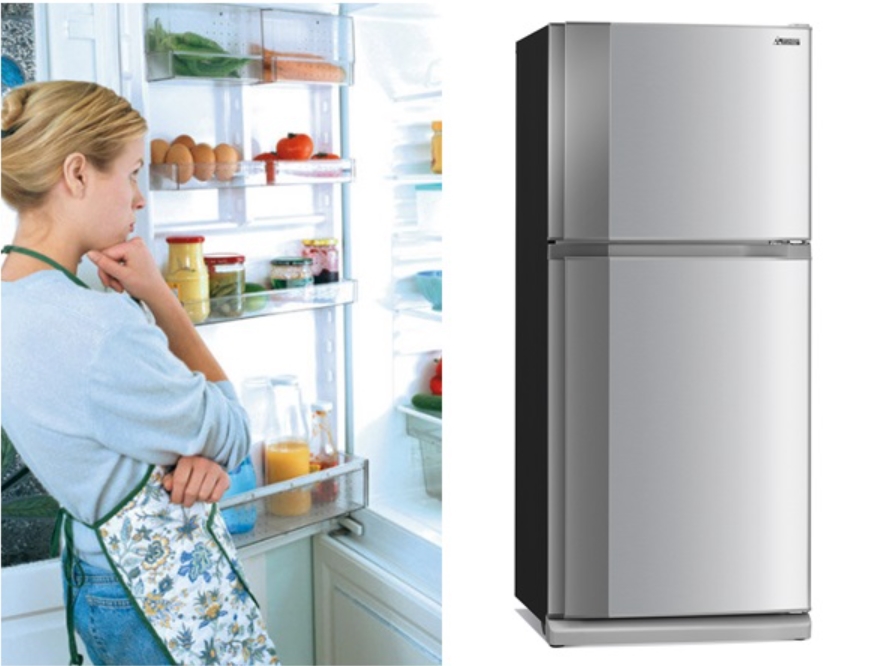
7. Leaving the refrigerator empty
By An Nhiên – Vietnamnet
More Useful Advice for Homemakers (Part 2)
Have you heard of the surprisingly easy tips to make cooking and household chores simpler? White radish eliminates the acrid taste of salted meat, adding alum to raw shrimp helps soften it, and adding cold water when frying eggs can make them crispy – these are just a few of the tricks to make your life easier.
























